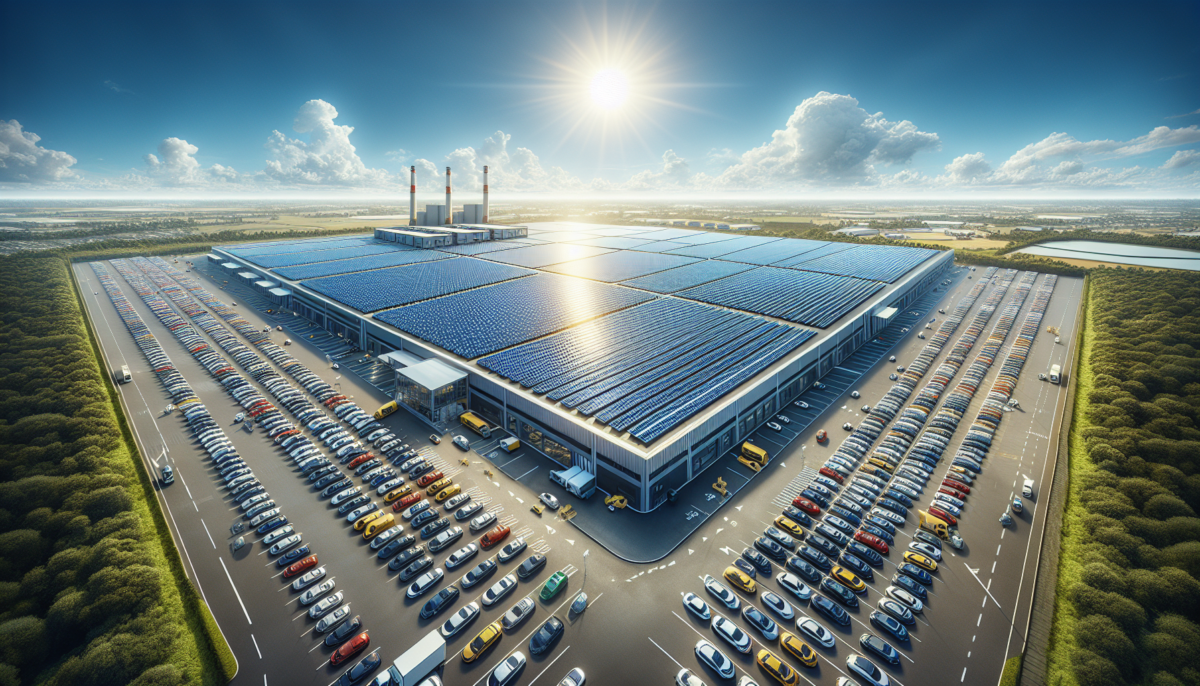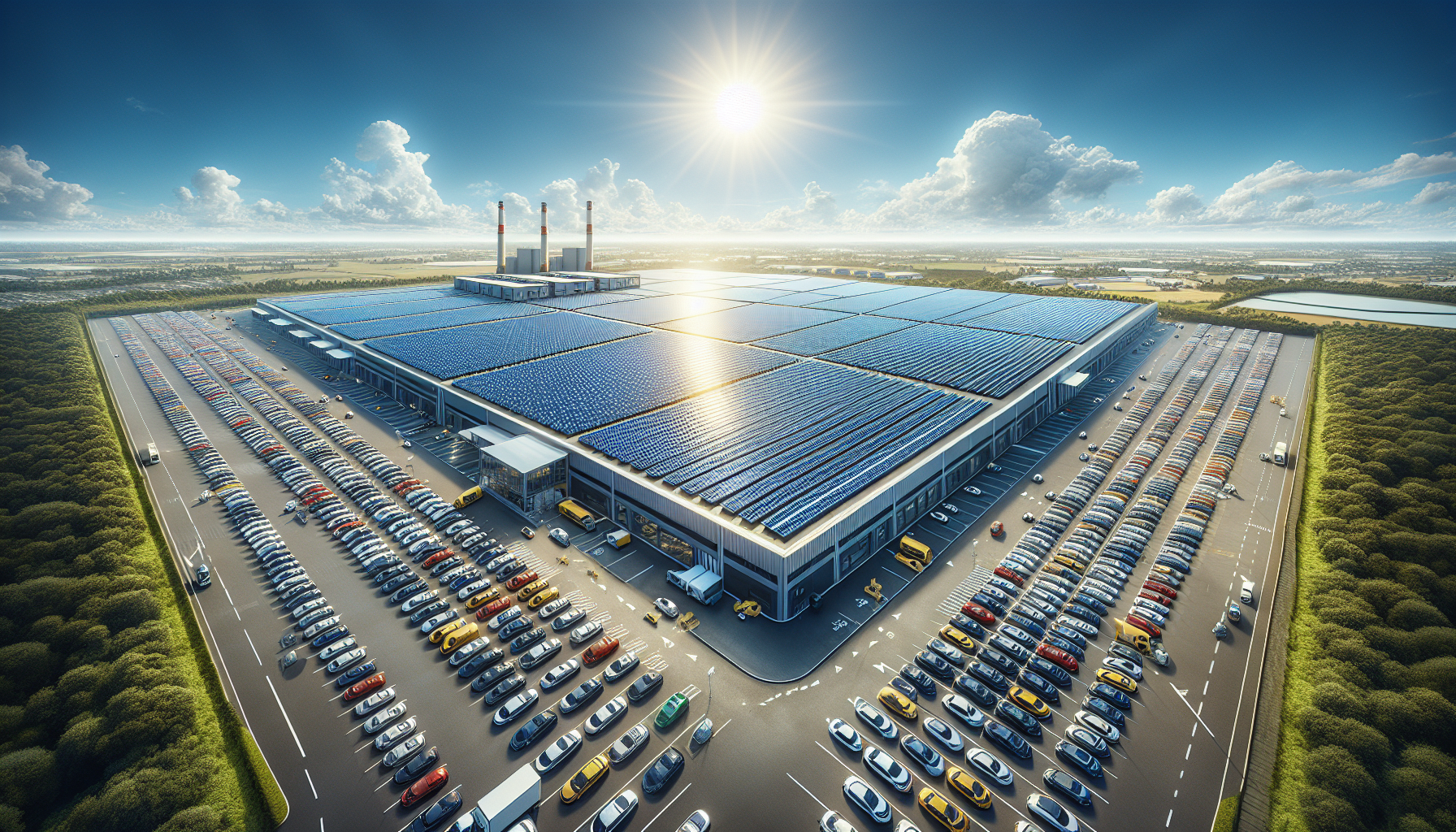“BMW Australia Energizes with 1,100 Solar Panels and a 44% Shift to Electric Vehicle Fleet”
We independently review everything we recommend. When you buy through our links, we may earn a commission which is paid directly to our Australia-based writers, editors, and support staff. Thank you for your support!

BMW Australia Intensifies Sustainability Efforts with Solar Growth and EV Expansion
Quick Overview
- BMW Australia’s Melbourne headquarters now boasts 1,109 solar panels, increasing its solar energy output to 500kW by four times.
- The solar installation generates 600 megawatt-hours (MWh) every year, accounting for twice the EVs compared to last year.
- Currently, 44% of BMW Australia’s fleet comprises fully electric vehicles (BEVs), marking a 33% rise since December 2023.
- Sales of BMW BEVs soared by 163% year-on-year, resulting in over 7,000 registrations in 2024.
- MINI BEV registrations have almost doubled within the same period.
- The company has implemented eco-conscious policies, such as banning single-use plastics and minimizing emissions using plant-based materials.
- BMW dealerships throughout the country are integrating solar panels, water recycling, and EV charging systems.
- The BMW Group is focused on reducing CO2 emissions per vehicle by 40% by 2030 as part of its sustainability framework.
Solar Energy: Empowering BMW Australia’s Headquarters
BMW Group Australia has notably enhanced its sustainability initiatives by expanding its solar panel installation atop its Melbourne headquarters. The total number of panels rose from 200 to 1,109, resulting in a fourfold increase in solar power generation. This modernized system now generates 500kW of power, capable of producing 600 megawatt-hours (MWh) each year. The solar energy produced is adequate to completely power the company’s expanding fleet of electric vehicles (EVs) on-site.

Electric Vehicles Transform Fleet Composition
The shift towards electric mobility at BMW Australia has reached unprecedented levels, with 44% of its fleet now made up of fully electric vehicles (BEVs). This signifies a remarkable 33% increase since December 2023. The company’s dedication to EV integration reflects customer demand, with BEVs accounting for 29% of BMW’s overall sales. In just 2024, over 7,000 BMW BEVs have been registered, indicating a year-on-year increase of 163%.
MINI, a subsidiary of BMW Group, has also experienced a significant rise in EV adoption, with BEV registrations nearly doubling by November 2024. This shows a rising demand for sustainable transportation across BMW’s offerings.
Eco-Friendly Practices at Headquarters
In addition to renewable energy and EV integration, BMW Australia has implemented crucial measures to minimize waste and lower its carbon footprint. At its Melbourne headquarters, the company bistro has replaced single-use takeaway cups with reusable options. Furthermore, plant-based water bottles, which mitigate carbon emissions by 74%, along with glass alternatives for other beverages have been introduced.
These measures reflect BMW Group’s global initiative of “Rethink, Reduce, Reuse, Recycle,” showcasing the company’s pledge to sustainability at all operational levels.
Dealership Partners Embrace Sustainability
The sustainability initiatives of BMW Australia extend well beyond its headquarters, with dealer partners nationwide playing an integral role. Numerous dealerships are now equipped with rooftop solar arrays, water recycling technologies, and EV charging points to cater to customer demands and enhance operational energy efficiency. Additionally, general waste recycling programs have been widely embraced.
BMW’s Global Sustainability Objectives
BMW Group strives to lower CO2 emissions per vehicle by at least 40% over its entire lifecycle by the year 2030 relative to 2019 benchmarks. This ambitious plan encompasses emissions from production, the supply chain, and end-user usage. The advancements observed at BMW Australia underscore the company’s commitment to these international goals, highlighting efforts to forge a sustainable future for mobility.
Conclusion
BMW Group Australia has made significant strides in its sustainability mission by considerably amplifying its solar panel capacity, transitioning almost half of its fleet to electric vehicles, and embedding eco-friendly practices at both its headquarters and dealerships. These initiatives form part of BMW’s overarching global objective to decrease carbon emissions and foster renewable energy. With a remarkable increase in BEV sales and the implementation of sustainable practices, BMW Australia is setting a benchmark in the automotive sector.
